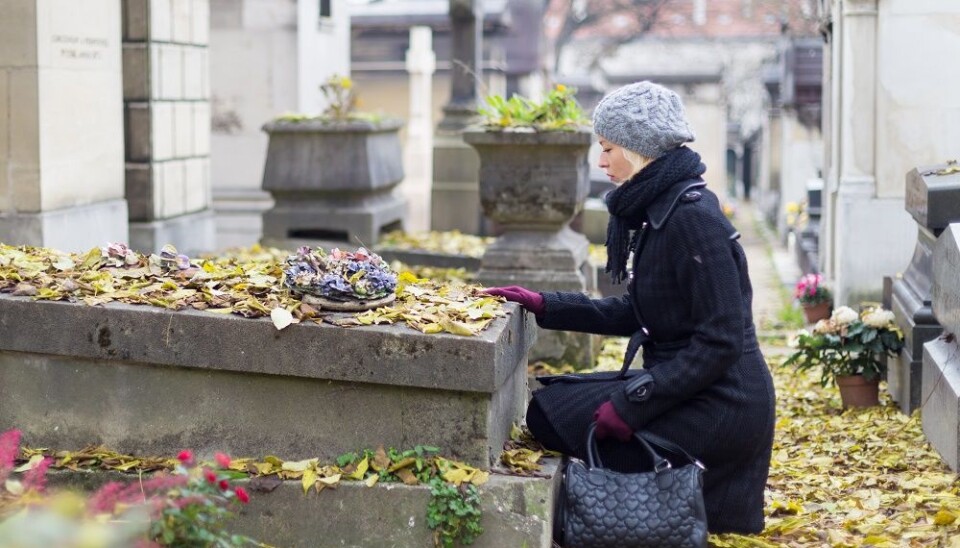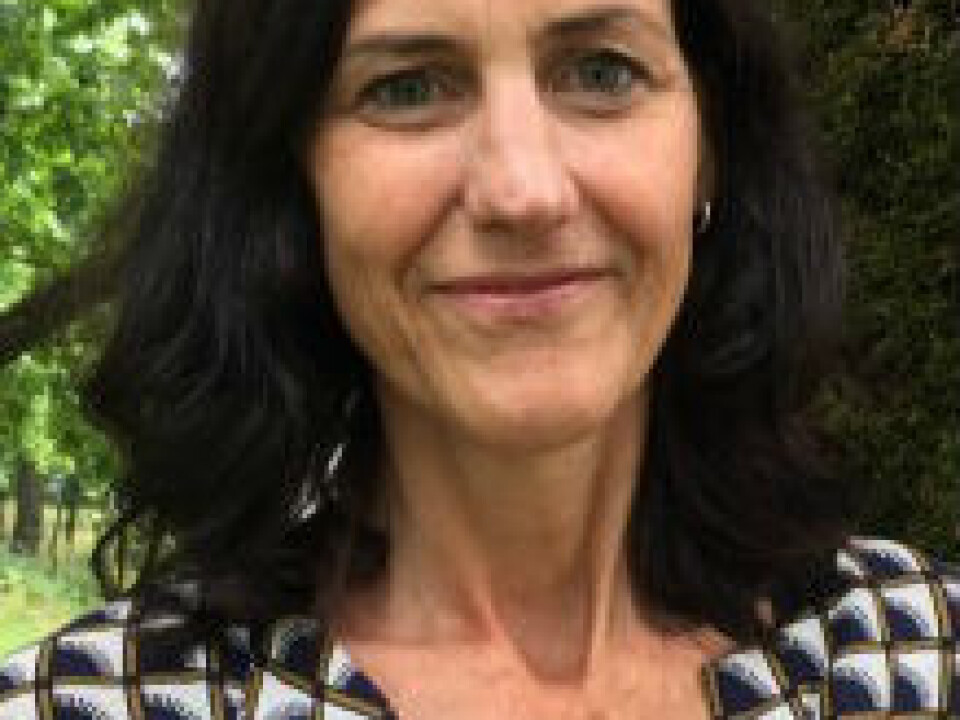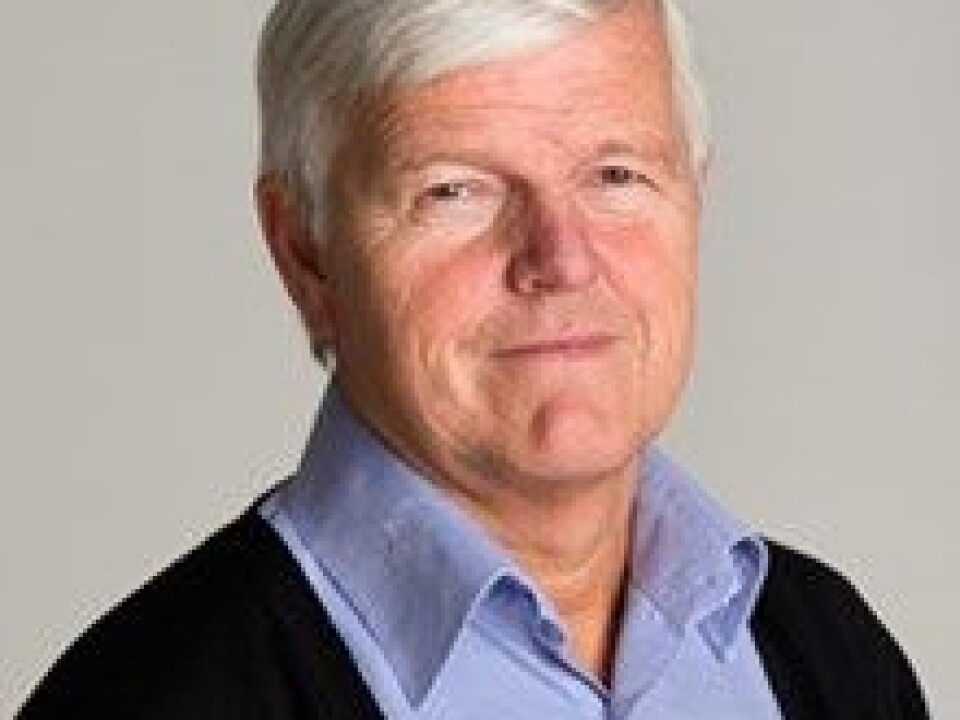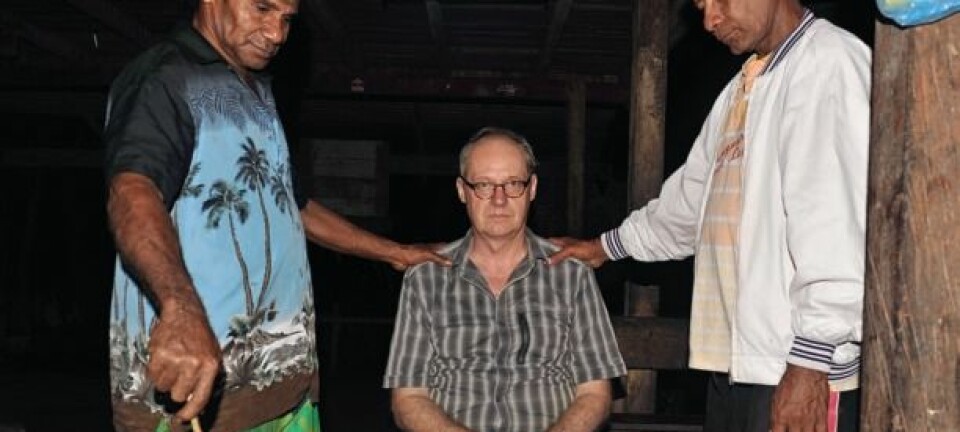
Normal to feel presence of the dead
It is becoming more accepted that some people connect with the dead. The research also reflects this, according to a theologian and a psychologist.
In the Norwegian TV series Folkeopplysningen (The people’s information) we meet Rolf Erik Eikemo. He died in May 2015. Before he died, he wrote a message on a sheet of paper and placed it in a sealed envelope. No one knows the contents.
Rolf Erik promised the program editors that if someone manages to get in touch with him, he would tell them from the afterlife what the message says.
On 5 October we'll know if anyone has been able to make contact with the dead man.
Proves nothing
“I think the TV series will neither prove nor disprove existence of the dead with this,” says theologian Anne Austad at VID Specialized University.

She understands that this is good TV, but she is afraid that some people might feel ridiculed and looked down upon by a rational elite.
“It depends on how the debate goes afterwards. It could also be that more people with similar experiences will dare to come forward.
Interviewed people who sense deceased’s presence
Austad believes greater transparency about this quite common phenomenon is important. Research from the United States and Britain shows that around half of those who have lost loved ones feel their presence after their death.
A 1991 survey indicates that 12 per cent of the Norwegian population report having contact with dead people.

She has taken such experiences seriously. In her 2015 doctorate Passing away - passing by, she interviewed people who claim they have or have had contact with the dead. Sixteen people of different ages and with different stories are included in the thesis. Some are believers, some are not.
One of the young women she interviewed constantly notices that her father, who died over ten years ago, is near her. Once he took her hand.
A slightly older man, who lost both his parents in an accident over 20 years ago, can still see his father. He is close to him and can guide the son in his construction work.
Declined invitations
Now Austad has started a new research project about people who use a medium to get help from deceased friends or relatives in making life choices, to resolve a conflict or to experience further contact. She is a "fly on the wall" when people seek out a medium.
Those she interviewed for her study hadn’t actively sought out contact through a medium or through spiritualism.
Nor was everyone grieving. Most found peace, safety, and comfort in their contact with the dead. But not all. There were also some who found it scary and were afraid. Several received local support from a priest or deacon.
Two stories made a particularly strong impression on Austad.
One woman told her that she had buried the deceased and related to him as dead, while also feeling his presence. She felt that this contact with the dead gave her life a new dimension.
The second story was about a woman who found the contact with her dead husband so important that she turned down invitations so she could be at home in her living room where he usually appeared.
Austad said, “The first story shows me how you can relate to the deceased as both dead and not-dead while also continuing life among the living. The second story shows me how such experiences can sometimes pull you away from life with the living.
More normal than you think
Austad believes greater transparency around this theme is important.
She is an ordained priest with who studied psychology in religion and knows many priests who meet bereaved individuals who believe they have a connection with the dead. Yet it was never talked about during her studies.
In recent years, the topic has shown up more on the church’s agenda,” she says. She thinks Professor Jan-Olav Henriksen at the Norwegian school of theology opened the door to the debate with his study about paranormal experiences presented in the 2013 book Uventet og ubedt (Unexpected and uninvited).
The Norwegian Church also has a new “Liturgy for the blessing of house and home" to bless and pray for "troubled" houses. Priests can use it when people experience that the deceased have not made peace with their death.
Many theologians explain it with psychology
What happens after death is part of theological discussions. Austad thinks views on the topic differ.
“Some people believe that when we’re dead, we’re dead until the Day of Resurrection. Others want to have a more open view of where the dead are,” she says.
Many theologians explain the phenomenon using psychology, she adds.
“Our Lutheran church hasn’t clarified its relationship to the intermediate state between this life and death. So some theologians believe that contact with the dead isn’t possible. Others believe that there might be something to it. Some are afraid that this might lead you away from God because the dead could become a greater authority,” Austad says.
Psychologists not surprised
Atle Dyregrov, a psychologist and professor at the Center for Crisis Psychology in Bergen, is not surprised that international research shows that about half of those who have lost their loved ones feel their presence after they have died.
“This is something psychologists know from both research and clinical practice. Some people feel that the person is in the room, some recognize their smell, and some even see them,” Dyregrov says.
He says that a few years back professionals thought that this wasn’t good, that these were ties to the dead that needed to be released. Today this is no longer the view,” says Dyregrov.
- Also read: Hallucinations or spiritual experiences?
Not a taboo topic in research and therapy
A lot of research literature exists on this phenomenon within the model of grief called Continuing Bonds. Whether or not it’s good for the bereaved to have too strong a connection with the deceased is an ongoing discussion.
“An overly strong connection can interfere with your daily functioning. But it can also be disturbing not to have any contact,” Dyregrov says.
He says that therapists can use contact with the dead in therapy, for example to help the patient let go of guilt.
“The patient imagines that the deceased is in the room and listens to what the voice of the dead has to say. We can use the dead constructively,” he says.
Dyregrov tells the story of a boy who had lost his father and carried a lot of anger that he couldn’t control. His anger was directed especially at his teachers, and he ran into conflict with them.
The therapist made the suggestion the boy imagine he had a receiver in his ear where his dad told him, “Calm down, son. You can handle this... and manage to stay calm." It immediately gave the boy better control.
These are methods that are well known both in normal grief monitoring and treating complicated grief. The grieving can use the deceased's "presence" to help them cope better with their altered existence. When you miss someone so incredibly much, these experiences can help build a bridge in the void.
Could be more than psychology
Dyregrov doesn’t deny that there’s more than psychology that could explain this connection with the dead.
“It's not my job to define where the connection comes from,” he says.
When people are grieving, their sensory and emotional apparatus is often strongly activated, says the psychologist. You become much more sensitive and notice different things than you usually do. Then you might also experience sounds and touches. And when you have a strong desire to be reunited with a loved one, you look for signs confirming that the deceased is with you.
We often interpret these events as psychological and call the bereaved overly sensitive. However, Dyregrov thinks that there is more between heaven and earth than we grasp.
“We need to be more open to these things. It becomes a problem if we get too rigid,” he said.
He is very wary of so-called mediums who contact survivors directly. But when the grieving person gets in touch with a medium to make contact, it’s understandable and can calm a person’s turmoil.
Doesn’t rule out anything
Austad isn’t sure what this phenomenon really is either. She doesn’t rule out that something may be left after a person dies, playing along with the psychological processes that take place.
“I’m hearing powerful stories. It’s become quite obvious to me that normal people have these experiences. They can occur in psychosis or strong grieving, but they also happen to our next-door neighbours. I haven’t been to a single party, mom gathering or other event without someone telling me that they’ve had experiences like this or know people who have,” Austad says.

































